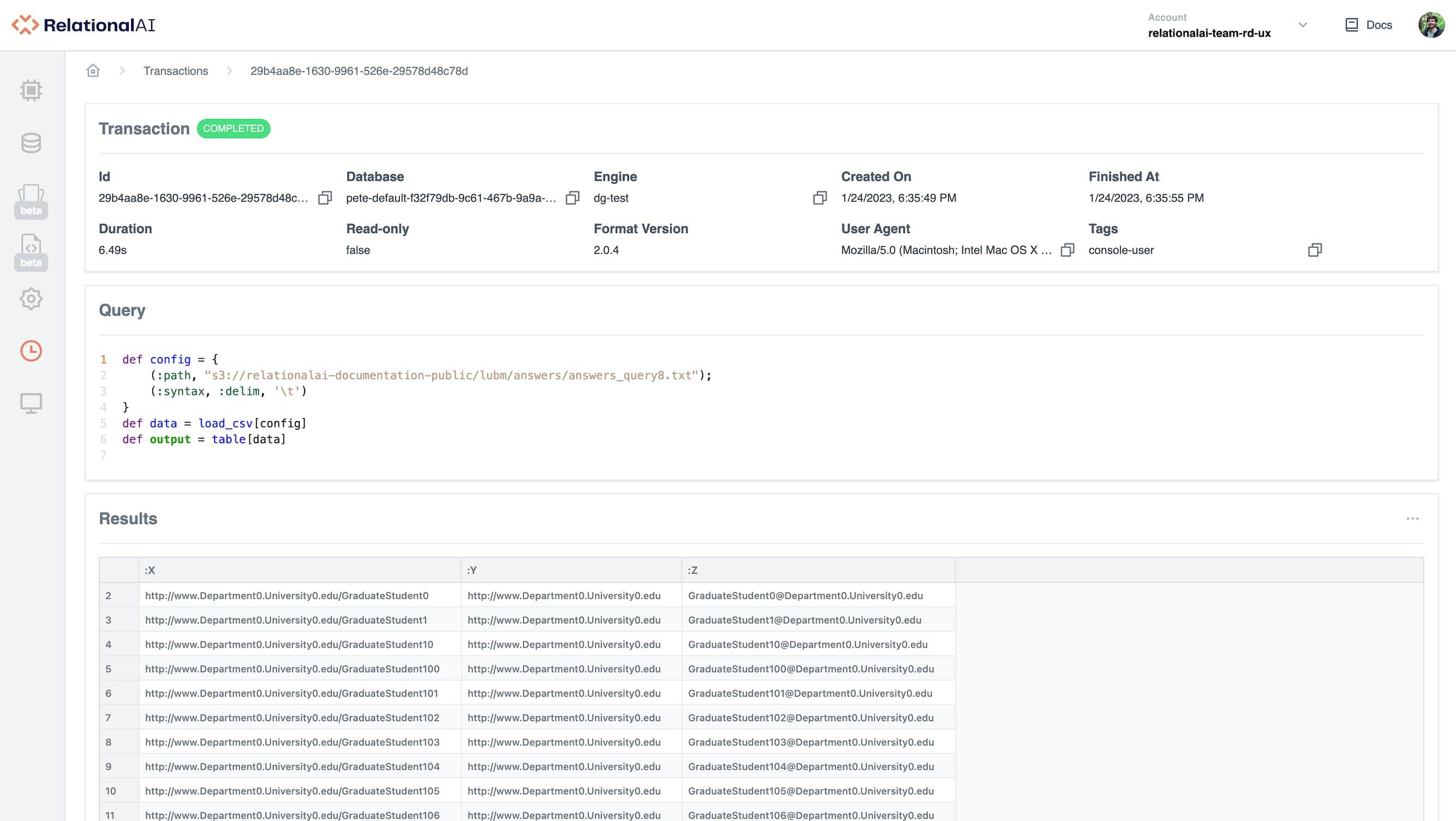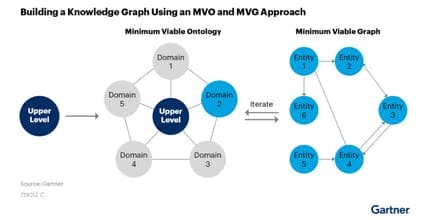Asynchronous Transactions: Start Now, Check Later

RelationalAI’s full suite of SDKs provides access to API endpoints which allow you to track long-running transactions in our Relational Knowledge Graph Management System (RKGMS (opens in a new tab)). This is more reliable for long-running transactions, allows transactions to be canceled, and keeps a log of transactions that you can inspect either while they’re running or at a later time.
You can now create a transaction, get an ID back, and then use that ID to check its progress and get its results. You no longer need to keep your connection to the cloud open until the transaction completes. This allows you to run asynchronous transactions and see results for up to seven days.
Asynchronous transactions are available in the RelationalAI SDKs (opens in a new tab) for Julia, Python, Java, Go, and C#. See specifically the Exec and ExecAsync methods.
Managing Transactions
Database transaction activity can be viewed, analyzed, and managed in the RAI Console (opens in a new tab). This gives you access to all transactions associated with the selected RAI account, including transactions initiated via the Console or any of the RelationalAI SDKs.
You can inspect the details of all past and currently running transactions, as well as cancel running transactions.
Searching for Transactions
You can search for transactions by entering text in the search box. Search only returns results for transactions already displayed; it will not return results for earlier transactions.
You can view detailed information on a transaction, which looks like this:

Further information is provided on the transaction details page, including transaction status (transaction, query, results), state (created, running, completed, aborted), and details.
For more details, see Managing Transactions in the RAI Console (opens in a new tab).
Related Posts

How to Build Knowledge Graphs That Enable AI-Driven Enterprise Applications: Research by Gartner®
The Gartner report, How to Build Knowledge Graphs That Enable AI-Driven Enterprise Applications, published in September 2022, states that “knowledge graphs deliver semantically enabled data management to power a diverse range of AI applications.”

RelationalAI Year in Review, 2022
As the year draws to a close, we’re taking a look back over 2022 to gather all our best content from the year into one place. It was a great year for us - we came out of stealth, grew our team, participated in fantastic conferences and events, and we’re excited for everything 2023 will bring.
Thank you for reading our blog this year and keeping up with our news. We wish you a very happy new year from all of us at RelationalAI.